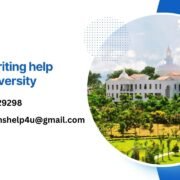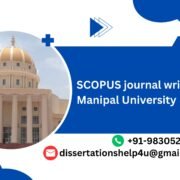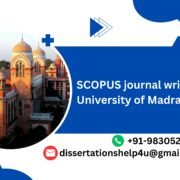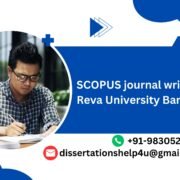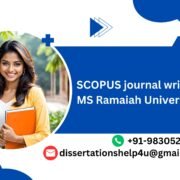MBA PhD writing help MS Ramaiah University
MBA PhD writing help MS Ramaiah University
Introduction
MBA PhD writing help MS Ramaiah University. In the competitive landscape of academia, pursuing advanced degrees like MBA and PhD requires not only dedication but also proficient writing skills. Get MBA PhD writing help MS Ramaiah University. At MS Ramaiah University, students embarking on this journey seek guidance and support to navigate through the complexities of academic writing. This comprehensive guide (MBA PhD writing help MS Ramaiah University )aims to shed light on various aspects of MBA and PhD writing help available at MS Ramaiah University, offering insights, tips, and resources for students.
Define the Health Topic
MBA and PhD writing assistance encompasses a wide array of disciplines, including business management, finance, marketing, and various fields of research. MS Ramaiah University recognizes the importance of robust writing skills in academia and provides extensive support to students undertaking MBA and PhD programs.
Explain its Relevance and Importance
Effective writing is fundamental in academia as it serves as a medium for knowledge dissemination, critical thinking, and scholarly communication. Proficient writing skills are especially crucial for MBA and PhD students, as they are expected to produce high-quality research papers, theses, dissertations, and publications that contribute to their respective fields.
Types and Categories
MBA Writing Help
- Business Management: Assistance with writing business plans, case studies, and strategic analyses.
- Finance: Support in financial modeling, investment analysis, and market research reports.
- Marketing: Guidance on developing marketing strategies, conducting consumer research, and writing marketing plans.
- Human Resources: Assistance with HR policies, organizational behavior analysis, and talent management research.
PhD Writing Help
- Research Proposal Writing: Support in crafting comprehensive research proposals, including literature reviews, methodology, and research objectives.
- Thesis Writing: Guidance throughout the thesis writing process, from structuring the document to editing and proofreading.
- Dissertation Writing: Assistance in writing and organizing dissertations, ensuring adherence to academic standards and formatting guidelines.
- Publication Assistance: Support in preparing research papers for publication in academic journals, including manuscript editing and journal selection.
Symptoms and Signs
Common Challenges Faced by Students
- Writer’s Block: Difficulty in generating ideas or organizing thoughts.
- Time Constraints: Balancing academic responsibilities with other commitments.
- Language Barriers: Non-native English speakers may struggle with language proficiency.
- Formatting Issues: Ensuring compliance with university guidelines and citation styles.
How MS Ramaiah University Addresses These Challenges
- Writing Workshops: Conducting workshops on academic writing techniques and strategies.
- One-on-One Consultations: Providing personalized guidance through consultations with writing instructors.
- Online Resources: Offering access to writing guides, templates, and academic databases.
- Peer Support Networks: Facilitating peer review sessions and writing groups for collaborative feedback.
Causes and Risk Factors
Factors Influencing Writing Skills Development
- Educational Background: Previous academic experiences and training in writing.
- Motivation and Interest: Intrinsic motivation to excel in academic writing.
- Access to Resources: Availability of writing resources, libraries, and research materials.
- Feedback and Support: Quality of feedback received from mentors, advisors, and peers.
Diagnosis and Tests
Assessing Writing Proficiency
- Writing Samples: Reviewing samples of students’ writing to assess their proficiency level.
- Writing Prompts: Administering writing prompts or assignments to evaluate critical thinking and analytical skills.
- Grammar and Style Assessments: Conducting assessments to identify areas of improvement in grammar, punctuation, and writing style.
- Plagiarism Checks: Utilizing plagiarism detection software to ensure academic integrity.
Treatment Options
Strategies for Improving Writing Skills
- Practice Writing Regularly: Encouraging students to write consistently to develop their skills.
- Seek Feedback and Revision: Emphasizing the importance of feedback and revision in the writing process.
- Utilize Writing Resources: Making use of writing guides, style manuals, and online writing tools.
- Attend Writing Workshops: Participating in workshops and seminars focused on academic writing techniques.
Preventive Measures
Promoting Effective Writing Habits
- Time Management: Helping students manage their time effectively to allocate sufficient time for writing.
- Setting Realistic Goals: Encouraging students to set achievable writing goals and milestones.
- Developing Critical Thinking Skills: Fostering critical thinking skills to facilitate analytical writing.
- Cultivating a Writing Community: Creating opportunities for collaboration and peer support among writers.
Personal Stories or Case Studies
Success Stories from MS Ramaiah University
- John’s Journey: Overcoming writer’s block and completing his thesis with the support of writing workshops and peer feedback.
- Maria’s Manuscript: Successfully publishing her research paper in a prestigious journal after receiving guidance from writing instructors.
- Ahmed’s Achievement: Securing funding for his research project through a well-crafted grant proposal developed with writing assistance.
- Emily’s Experience: Improving her writing skills through regular practice and mentorship, leading to academic success.
Expert Insights
Testimonials from Writing Instructors
- “At MS Ramaiah University, we are committed to providing comprehensive writing support to our students, empowering them to excel in their academic endeavors.” – Dr. Smith, Writing Center Director.
- “Effective writing is not just about conveying information; it’s about engaging readers and contributing to the scholarly discourse.” – Professor Johnson, Writing Instructor.
Conclusion
In conclusion, MBA and PhD writing assistance at MS Ramaiah University plays a pivotal role in nurturing students’ writing skills and facilitating their academic success. By providing tailored support, resources, and mentorship, the university empowers students to overcome writing challenges and excel in their academic and professional pursuits.
Thank you for read our blog “MBA PhD writing help MS Ramaiah University”. I hope this blog is helpful to you, if you have any question feel free Call / WhatsApp: +91 9830529298 || Email: dissertationshelp4u@gmail.com.
Also read our more BLOG here.
#MBA, #PhD, #WritingHelp, #MSRamaiahUniversity, #AcademicSupport, #DissertationHelp, #ResearchAssistance, #Education, #HigherEducation, #UniversityLife, #StudyTips, #AcademicWriting, #StudentSuccess, #GraduateStudies, #Postgraduate, #StudyAbroad, #StudentLife, #MSRamaiah, #PhDLife, #MBAJourney, #ThesisWriting, #ScholarLife, #MSRUAS






